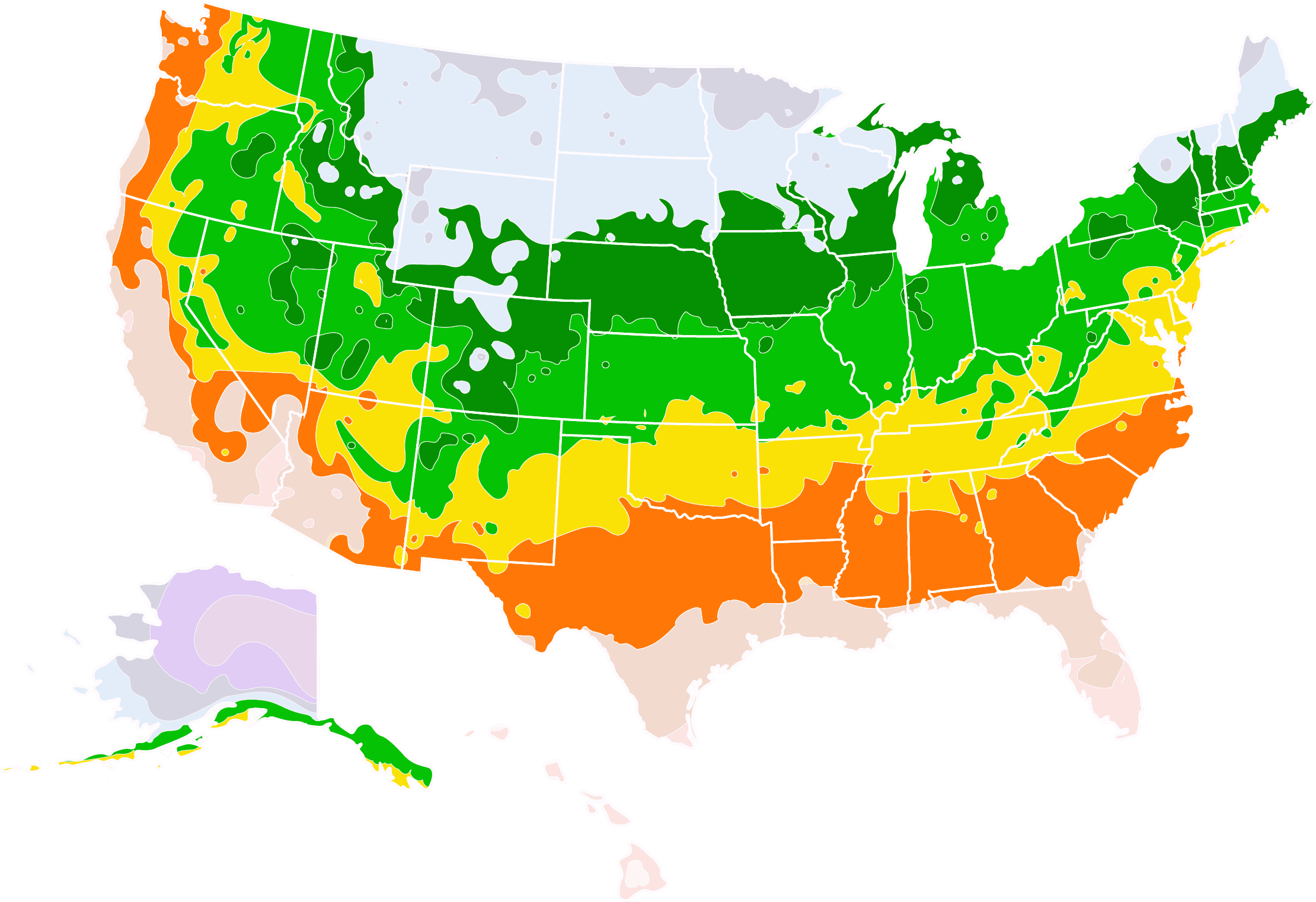- Home >
- Flowers >
- Trees and Plants with White Flowers >
- White Flowering Dogwood
White Flowering Dogwood for Sale - Buying & Growing Guide
- Ships in 1-2 days
- 1-Year Warranty Eligible
- Pots or accessories are not included unless specified in the product options.
Shipping Details:
Once your order is shipped, you’ll receive an email with a tracking number and estimated delivery date. Most orders ship immediately, but some items are seasonal and may only ship in spring or fall. These products are noted on the website.
The white flowering dogwood (Cornus florida) is a deciduous tree species known for its white flower clusters that turn a vibrant reddish-purple in autumn. Native to Eastern North America, the white flowering dogwood is found in landscapes around the world. This iconic plant is the state tree of Missouri and Virginia.
- Signals the start of spring with early flowers.
- These trees also provide fall color with vivid red leaves and red berries in winter.
- Many cultivars of the species exist, each with different colored blooms and foliage.
Plant Care
Sunlight

Although they tolerate full sun, flowering dogwoods do best in partial shade, about 4 hours of sun a day.
Watering
Water every few days when newly planted, then decrease to once a week during the growing season.
Fertilizing

Fertilize annually with a slow-release product designed for landscape and ornamental trees.
Planting and Care
Planting instructions
Choose a planting location that receives full sun to partial shade. Dig a hole to the root ball’s depth and twice its width. Gently place the tree into the hole, being sure to keep it upright and level with the ground. Make sure that the tree’s graft union, which looks like a raised scar at the base of the trunk, is above the soil level. Backfill the hole with dirt and tamp down lightly to help support the tree. Water the planting site thoroughly to help the roots settle in. Mulching around the base can ensure moisture is retained during the early stages of growth.
Watering and nutrients
Water your new transplants every few days while they establish themselves. The white flowering dogwood tree has a shallow root system and is prone to damage from overwatering. Proper drainage and irrigation promote a long, healthy life for the tree. While they should not require it, your dogwood trees may benefit from the application of fertilizer once per year. In early spring, apply a light layer of compost or all-purpose fertilizer to increase bloom quality and foliage production.
Pollination
The blooms of C. florida arrive in April, signaling the start of the spring with their beauty. The flowers are tiny, with green petals, forming into dense clusters of 20 or more individuals. The groups of blooms are framed by four bracts (a large leaf), giving the illusion that each cluster is a single, large flower. Bees, butterflies, and other pollinators gather the nectar from white flowering dogwood trees and spread the pollen to nearby trees.
Pruning
Late winter is the best time to prune C. florida, as this is when the trees are dormant. Always use sterilized pruning shears and start by removing dead, dying, and diseased portions of the tree. You can prune to alter the canopy’s shape and size, while also promoting airflow throughout the tree. Borers can enter wounds created by pruning and are the most common pest that causes problems in white flowering dogwoods. To prevent issues, avoid pruning in the spring and summer when borers are most active.
Pests, diseases, and animals
Spot anthracnose and powdery mildew are fungal diseases that show up on white flowering dogwood trees when conditions are humid or moist. To prevent these infections, always plant in well-draining soil and prune your trees to promote airflow. Deer can be a problem for dogwood trees, as they eat the foliage and diminish the tree’s growth and potential. If deer become a nuisance, fencing is the best method to keep them away. Damage from pests is not common and can be avoided by raising a healthy tree.
FAQs
How big do white flowering dogwood trees grow?
White flowering dogwood trees can grow to heights between 15 to 25 feet. Their canopy forms into a rounded shape with a diameter between 20 to 25 feet. At maturity, the trunk of the tree measures around 12 inches across. They grow at a slow rate of 10 to 15 inches per year. The average lifespan of C. florida is 80 years, but individual trees planted in ideal conditions live much longer.
Why is my dogwood tree not blooming?
Spring is here, but where are the dogwood blooms? Do not worry, many factors can lead to a lack of flowers on your trees. C. florida may take a few years to produce an initial set of blooms. To encourage faster and fuller production, make sure you are following the watering and nutrition guide outlined above. As dogwoods are some of the first trees to bloom each spring, the blooms are susceptible to cold damage. Cover your trees during late frosts if necessary.
Is the fruit from a dogwood tree edible?
When properly pollinated, the white flowering dogwood tree will produce red berries that ripen in the fall. The berries can be consumed raw but are often cooked down and processed into jam, jelly, or other goods. People have experienced rashes and other allergic reactions when coming into contact with the tree. Do not eat the fruit if you experience these issues. While the fruit is not toxic, caution should be taken when consuming it. Try a small amount first to confirm that it does not have adverse effects on your body.
How does Cornus florida compare to other dogwood cultivars?
There are many cultivars of C. florida, each with varying bloom colors, disease resistances, and other unique features. ‘Purple Glory’ features purple foliage and red flowers, and is resistant to some fungal diseases. ‘Appalachian Spring’ produces larger white flowers and has a natural resistance to dogwood anthracnose. The ‘Cherokee Sunset’ variation features multi-colored foliage and reddish-purple flowers. ‘Gulf Coast Pink’ is a pink-flowered cultivar that grows well in Northern Florida along the Gulf Coast.
Compare Similar Products
Customer Reviews
 Tree review
Tree reviewArrived early and in good condition
 Healthy tree
Healthy treeTree arrived healthy, packed with care and has already pushed new shoots!
 Perfect and healthy
Perfect and healthyPerfect. Both trees arrived with leaves. One actually had a blossom. I put them in the ground and watering them every other day and they're just thriving. They're beautiful and healthy.
 White Dogwoods
White DogwoodsThese were very good trees. Very impressed. Would recommend.
 50/50
50/50The white dogwood survived the trip and is in good shape. The Coral Bark maple is not looking good. I think it might survive but it's already lost half its leaves.
 Dogwood good, silver maple bad
Dogwood good, silver maple badThe dogwood tree arrived in very good condition, but the silver maple packed in the same box arrived in bad condition with over half of the leaves broken off. I hope the maple tree will survive and so far so good
 Beautiful tree, easy to plant, smaller than advertised
Beautiful tree, easy to plant, smaller than advertisedThe tree came packaged well and delivered quickly. It came with clear planting instructions and looks great. The only downside is I paid for a 6-7ft tree and it arrived at about 4ft, the box itself was only about 5ft long.
 White Dogwood
White DogwoodThe tree came with no damage. I immediately planted and watered the tree. As advised there were some dead leaves, but the tree is doing well and I'm it everyday.









